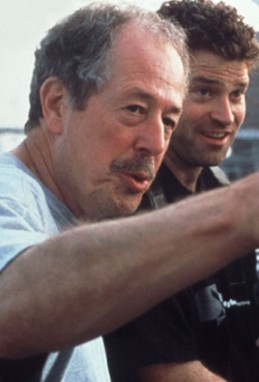
Denys Arcand
Films in our catalogue
Biography
AfteAfter graduation, Denys Arcand went to work for the National Film Board of Canada where he directed Cotton Mill, Trademill (1970), a documentary about abuses in the Quebec textile After graduation, Denys Arcand went to work for the National Film Board of Canada where he directed Cotton Mill, Trademill (1970), a documentary about abuses in the Quebec textile industry, which was officially banned for 6 years because of its allegedly biased point of view. Equally controversial, another politically-orientated documentary followed in 1972: Quebec: Duplessis and After, which deals with the political aftermath of Quebec ex Prime Minister, Maurice Duplessis. In 1972, Denys Arcand leaves the National Film Board and directs his first fiction feature, DIRTY MONEY, an ironic thriller involving theft and murder screened at the Cannes Film Festival (Critics' Week, 1972). From then on, his films meet both critical and popular acclaim. REJEANNE PADOVANNI is selected in 1973 by The Directors' Fortnight and The New York Film Festival, followed by STONE COLD REVENGE and COMFORT AND INDIFFERENCE (Best Film of the Year by the Quebec Film Critics Association, 1981). THE CRIME OF OVIDE PLOUFFE in 1974, based on Roger Lemelin's novel, sets breaking box-office records in Quebec. In 1987, Denys Arcand writes and directs THE DECLINE OF THE AMERICAN EMPIRE, his breakthrough film. Screened at Cannes Directors' Fortnight, the film is rewarded with the FIPRESI Prize (International Critics Prize awarded by the International Film Press Federation). It is nominated at the Academy Awards in the Best Foreign Language Film Category that same year. In Canada, THE DECLINE OF THE AMERICAN EMPIRE will receive nine Genie Awards (the Canadian Oscars), the L-E Molson Award from the Quebec Film Critics' Association, and many more international awards. A hit on the festival circuit (Toronto, Vichy/France, Taormina/Italy, Chicago Film Festival, etc...) and with both critics and filmgoers, THE DECLINE OF THE AMERICAN EMPIRE became Canada's biggest screen success worldwide. In 1989, his JESUS OF MONTREAL - which he edited as well - is the Cannes Film Festival shocker of the official competition: it is crowned with the Jury Prize and the Oecumenical Prize. This dazzling mix of passion play drama, Catholic ideology and contemporary satire earned an Oscar nomination as Best Foreign Language Film and won 12 genie Awards in its country. After contributing a segment to Montreal Sextet (Vue D'ailleurs) in 1993, which celebrated the 350th Anniversary of the founding of the city, Denys Arcand helms in 1995 the screen version of Canadian Brad Fraser's controversial play Love and Human Remains, shooting in English for the first time. He then goes on to direct for television Poverty and Other Delights (1996), a film on the homeless: starring Benoit Brière and Gaston Lepage, it received 3 Gemini Prizes for Best Drama, Best Director and Best Screenplay from the Canadian Academy of Motion Pictures and Television. In 2000, Denys Arcand's satire on fame, STARDOM was the first Canadian film ever to screen on the Cannes Film Festival closing night. It was selected by the International London Film Festival, as well as by the Toronto and the Vancouver Film Festivals, and received the Writer's Guild Award for Best Screenplay. The film has sold in over 30 territories worldwide. All Denys Arcand's films show his deep passion for history and characters from different social backgrounds. industry, which was officially banned for 6 years because of its allegedlyr graduation, Denys Arcand went to work for the National Film Board of Canada where he directed Cotton Mill, Trademill (1970), a documentary about abuses in the Quebec textile After graduation, Denys Arcand went to work for the National Film Board of Canada where he directed Cotton Mill, Trademill (1970), a documentary about abuses in the Quebec textile industry, which was officially banned for 6 years because of its allegedly biased point of view. Equally controversial, another politically-orientated documentary followed in 1972: Quebec: Duplessis and After, which deals with the political aftermath of Quebec ex Prime Minister, Maurice Duplessis. In 1972, Denys Arcand leaves the National Film Board and directs his first fiction feature, DIRTY MONEY, an ironic thriller involving theft and murder screened at the Cannes Film Festival (Critics' Week, 1972). From